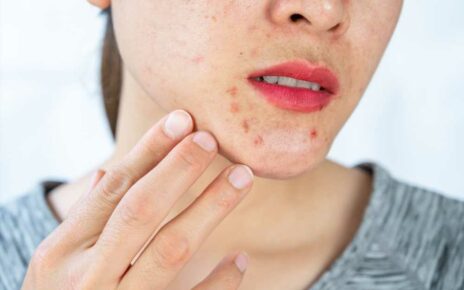A HEALTH expert has warned Brits to be careful when consuming diet food and drinks – saying they could actually be making you fatter.
Respected Professor Tim Spector said 'healthy' alternatives may actually be doing more harm than good.



He said there were "many woefully outdated myths that have benefitted the food industry" – which have led to record obesity levels across the UK.
"I’m convinced that diet drinks are not the answer either", he wrote in the Daily Mail.
He said that artificial sweeteners used in diet drinks may be less healthy than Brits believe,
"Although food companies dress them up as healthy alternatives, they are far from it", he wrote.
Read More Nutrition Stories

From ginger tea to sweating – 7 easy ways to combat inflammation

You’re eating banned foods but won’t know unless you check the fine print
He also disputed claims that "all calories are equal, low-calorie foods are good, artificial sweeteners are healthy and high levels of processing are harmless."
The scientist, who works to unlock the secrets of how we metabolise food, warned Brits that "the evidence no longer stacks up" over the benefits of low-sugar drinks.
Studies are finding that artificial sweeteners used in diet drinks are far less healthy than once believed.
While the low-calorie options may not directly add to your daily calories, one potential mechanism to how they cause weight gain is the lack of energy they provide.
The sweetness of the drinks may trick your brain into believing energy is on its way, leading it to send signals to the body to eat more to try and regain the energy it was expecting.
Most read in Health

Fruit to exercise, seven tips to boost your health at each stage of your life

I've been stuck in bed for THREE YEARS waiting for an operation

How your body odour could be a sign of four deadly diseases

Why am I dizzy? GP reveal 4 causes – and when it's a medical emergency
A study earlier this year by the German National Cancer Centre found that adults taking the sweeteners had “very distinct changes in the composition and function of gut microbes” – with the drinks potentially leading to diabetes.
This microbe imbalance may be another explanation to the drink's fattening effect, as gut health plays a crucial role in our metabolism.
The King's College London professor also took aim at so-called 'diet meals', and explained how they may have the opposite effect by making you even hungrier.
He said: "We used to believe that the only bad thing about ultra-processed foods such as sweetened breakfast cereals, ice cream, packaged soups and sauces and tortilla chips was that they contained too much fat, sugar and salt.
"But we have ignored the fact for too long that these foods are completely lacking in natural structure, also known as the food matrix, and are made up of many chemicals, which make us feel hungrier, and are associated with an increased risk of disease and earlier death as shown in many published studies."
The professor also said that processed foods marked as 'diet' may trigger overeating.
The metabolism expert added that the sugars that make up ulta-processed foods (UPFs) may trigger overeating, even if they are advertised as 'diet' foods.
"Another problem with UPFs is that the sugars in them are readily available as they have been ‘stripped’ from their natural food matrix and cause more sugar peaks and dips which lead to hunger pangs and subsequently over-eating" he said.
Unfortunately for vegetarian Brits that believe their meat-free diets help them avoid these risks, those that rely on heavily-processed fake meats are just as in danger.
A study from The American Journal of Clinical Nutrition discovered that vegetarian's that consume meat-free UPF's are at the same risk of early mortality as those who eat red meat.
Professor Spector's tips for a healthy diet
Use REAL butter
While margarines are no longer filled with trans-fats due to their association with high cholesterol and risk of heart disease, the jury is still out over their use.
Instead, Tim suggests opting for real butter or polyphenol rich extra virgin olive oil.
Avoid 'healthy' crisps
Despite their lower sugar and salt contents, many 'healthy' crisps remain ultra-processed.
Avoiding these products, which are often filled with over 14 ingredients, emulsifiers and flavourings, for a simple potato crisp with only two or three is the better option – in moderation.
Steer-clear of iceberg lettuce
Although it is one of the more popular salad-fillers, iceberg lettuce remains one of the least nutritious lettuce options.
Instead, choose colourful leaves, which pack a far stronger nutritional punch.
Tim said: "If you depend on iceberg for one of your ‘five a day’ you would need 500 a day.
"Italian lollo rosso curly loose-leaf varieties are packed with beneficial plant compounds and have 300 times more antioxidant potential than iceberg."
Nuts are under-appreciated
Nuts have often received a bad rap, but the nutrition expert warned that we may have overestimated their calorie content by up to a quarter.
Studies show nuts can reduce your risk of obesity by 20 per cent if you eat five portions a week.
Their high protein and fibre content can make you feel fuller faster, and they can have benefits on your all-important metabolism.
Give prunes a chance
Prunes may not be everyone's favourite fruit, but they offer a variety of health benefits.
Alongside their reputation as a constipation cure, they aid digestion, are nutritious, and pack a healthy punch of fibre.
Source: Read Full Article


